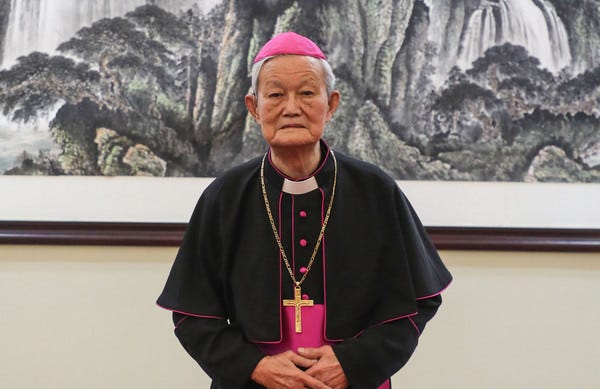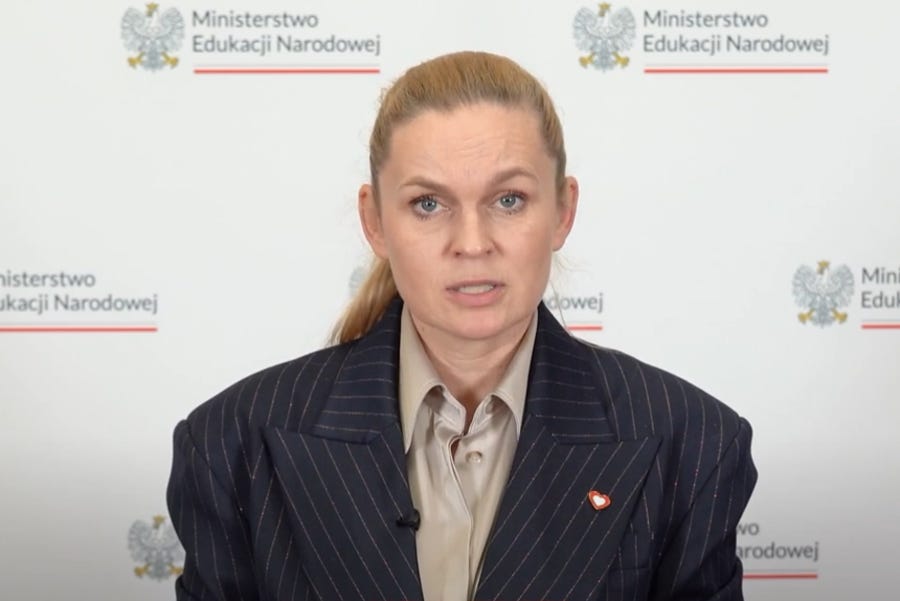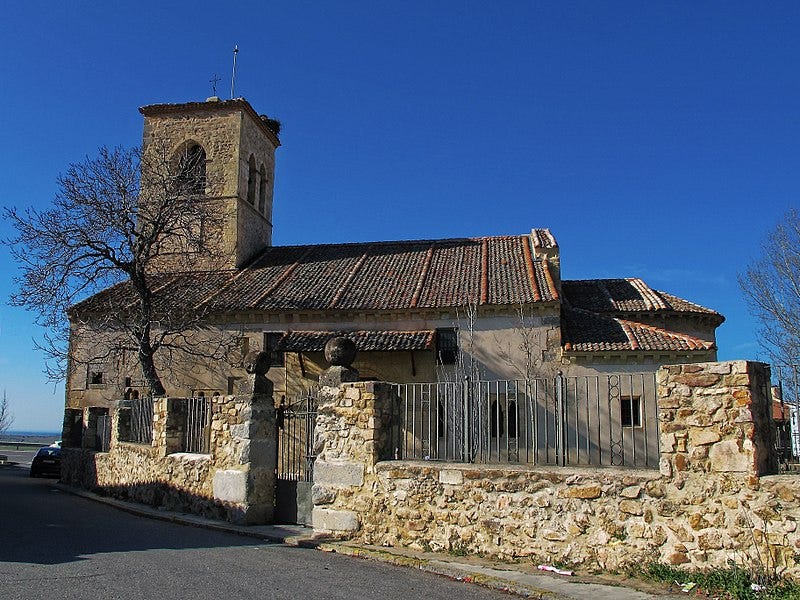The Holy See announced Tuesday that the Chinese government has recognized an underground mainland bishop as the legitimate leader of his diocese.
Bishop Melchior Shi Hongzhen, 95, has led the Diocese of Tianjin since 2019 — having previously been coadjutor of the diocese since 1982. He is believed to be the first Catholic bishop government authorities have recognized who has not formally joined the state-sponsored Chinese Patriotic Catholic Association.
With the Vatican’s agreement with Beijing on episcopal appointments set for renewal in October, Shi’s recognition by the state has been hailed by some China-watchers as a sign of real progress for the Holy See.
In fact, Shi’s acceptance as a bishop by state authorities — and crucially his acceptance of a formula for accepting state recognition — could provide a template for resolving an impasse which has plagued Vatican-China relations since 2018, and kept dozens of bishops underground and subject to state harassment.
It is just possible that with Bishop Shi, Beijing may have found a way for faithful Chinese bishops to acknowledge the government without renouncing the Church’s own authority. Whether this was by accident or design remains to be seen.
—
“The Holy See has learned with satisfaction that today, 27 August 2024, Bishop Melchior Shi Hongzhen has been officially recognized under civil law as bishop of Tianjin,” according to a Vatican press office statement Tuesday morning.
“This measure is a positive fruit of the dialogue established over the years between the Holy See and the Chinese Government.”
The Holy See’s “satisfaction” with the fruits of years of dialogue with China is no doubt sincere.
State recognition of an underground bishop is, in itself, significant development, though significant of what is open to debate.
Some skeptics in Rome may be tempted to play down the acceptance of a nonagenarian bishop as a hollow PR stunt, either to burnish the Vatican-China deal ahead of its pending renewal. Others in China have already suggested the official apparatus want to play off accepting a famous underground bishop as a coup for the state-controlled Church.
And the recognition by the mainland government of a bishop who has publicly refused to acknowledge state supremacy over ecclesiastical affairs is, to be sure, a remarkable result ahead of the renewal of the Vatican-China deal, set to expire in October.
But however positive a fruit Shi’s state acknowledgement is, along with the lifting of his house arrest, the reality is that it's unlikely to have a long shelf life.
At 95, Shi’s recognition is unlikely to prove much of a lasting monument in Sino-Vatican relations. On the contrary, even assuming — and hoping for — his longevity, his unexpected acceptance by the government raises questions about who will succeed him, and points to the reported inability of the Holy See to secure Beijing’s blessing for an acceptable candidate to serve as coadjutor.
Supporters of the Vatican’s engagement with the Chinese government can reasonably point to Shi’s civil acceptance as the latest advance following a succession of appointments to dioceses earlier this year ahead of the deal’s inevitable renewal.
Results this tangible have been thin on the ground since the deal was first agreed in 2018.
At that time, China’s estimated 12 million underground Catholics were led by some 30 bishops. When the deal was agreed, the expectation (or hope) was that these would come above ground, join with the official, state-sanctioned CPCA, and together form one Catholic Church in China, recognized by the civil authorities and in communion with Rome. There would then follow a steady stream of mutually agreed and agreeable episcopal appointments for China’s dozens of vacant sees.
The results have been, at best, much more mixed.
For every smooth, mutually agreed upon appointment, the Chinese government has pressed ahead with installing candidates of its own, with Rome left to accept the appointments after-the-fact, first denying there was any problem and more recently acknowledging China was violating the agreement.
Whether the state’s acknowledgment of Shi is a sign of things to come, or a conciliatory step before a CPCA bishop is installed as his successor — with or without Roman approval — only time will tell.
More skeptical observers of the Vatican’s dealings with China will note that, however satisfied they are by the announcement of Shi’s recognition by the state, the Secretariat of State had no prior notice of the event and had to read the news on state-sponsored media portals along with everyone else.
However “satisfactory” any given announcement might be, it says much about the real state of Vatican-China relations that such an important development in their favor was agreed and carried out without Rome being made aware. Though, that could be at least partly a function of Vatican diplomatic dysfunction.
That said, assuming no further action is taken in Tianjin for the time being, the Vatican’s Secretariat of State will reasonably take some credit for standing by Shi, who was visited by the veteran papal diplomat Archbishop Claudio Maria Celli shortly before the deal was last renewed in 2022.
That visit, and the gift of a pectoral cross from Pope Francis, was a pointed gesture of solidarity for Shi, especially give criticism of the Secretariat of State as appearing to abandon underground clergy who refused to swear allegiance to the Chinese state in its 2019 pastoral guidelines which effectively encouraged priests and bishops to take the government oath with a reservation of conscience.
As a very public holdout, who refused for years to take the necessary oaths of supremacy to the Chinese state, Bishop Shi is certainly vindicated personally by Tuesday’s announcement — as was his apparent personal insistence that the event take place in an hotel, rather than a cathedral, to emphasis its purely civil significance.
While the timing of the event, ahead of the Vatican-China deal’s imminent renewal, is certainly welcome in Rome, it should be noted that the Communist Party has not previously shown itself interested in helping the Vatican save face over its relation with Beijing.
It is reasonable, then, to ask what Tuesday’s news does for the CPCA and CCP.
Thinking narrowly, it is possible local authorities see the acceptance of Shi as an opportunity to secure his endorsement for a possible CPCA coadjutor to succeed him, and in doing so establish a timeline for bringing Tianjin’s nearly 60,000 underground Catholics under state oversight.
It could also be that the CPCA hopes to use Shi in a kind of bait-and-switch PR coup for the state sanctioned Church, spinning his acceptance by the state authority as his having in fact joined the CPCA — and presenting this as reason for the approximately two dozen other underground bishops to do so as well.
However, if that is the ultimate plan, it could end up unlocking a much bigger problem for the underground Catholic Church and creating a genuine path to progress for many mainland clergy.
A key point of dispute since the agreement of the Vatican-China deal in 2018 has been the actual formula clerics are required to recite to join the CPCA. That wording has included an explicit acceptance of state supremacy over Church affairs, and of Communist Party doctrine over Church teaching.
As the Vatican acknowledged in its own guidelines in 2019, the exact words bishops and priests are required to recite to join the CPCA — and thereby enjoy legal license to minister — can vary around the country but “requires, almost invariably, the signing of a document in which, notwithstanding the commitment assumed by the Chinese authorities to respect also Catholic doctrine, one must declare acceptance, among other things, of the principle of independence, autonomy and self-administration of the Church in China.”
The secretariat noted that “for its part, the Holy See continues to dialogue with the Chinese Authorities about the civil registration of Bishops and priests in order to find a formula that, while allowing for registration, would respect not only Chinese laws but also Catholic doctrine,” though no fruits have been announced as a result of that dialogue.
However, the CPCA announced on Tuesday that Shi “solemnly swore to abide by the National Constitution, to safeguard the unity of the homeland and social harmony, to love the country and the Church, and to always adhere to the direction of the sinicization of Catholicism in China.”
“By obeying God's commandments, carrying out his duties as a bishop well, faithfully preaching the Gospel, together with the priests and faithful of the Tianjin diocese, he contributes to the overall construction of a modern socialist country and the overall promotion of the great rejuvenation of the Chinese nation,” so the CPCA acknowledged in turn.
While the “sinicization” of the local Church remains a disputed and controversial term among many observers, the formula accepted by Shi does not appear to have required any acknowledgment by the bishop of Communist Party doctrine as supreme over Church teaching, or any explicit claim of ecclesiastical independence for the Chinese Church, or its subordination to the state.
That is a potentially very significant development. If that formula, as reported by state media, is now sufficient for an underground bishop to receive state recognition, that could open the way for Shi’s own clergy and even some underground brother bishops to follow his lead.
How many would choose to do so, and how any influx of underground clergy might impact future episcopal appointments on the mainland is anyone’s guess.
But the possibility is worth noting.




